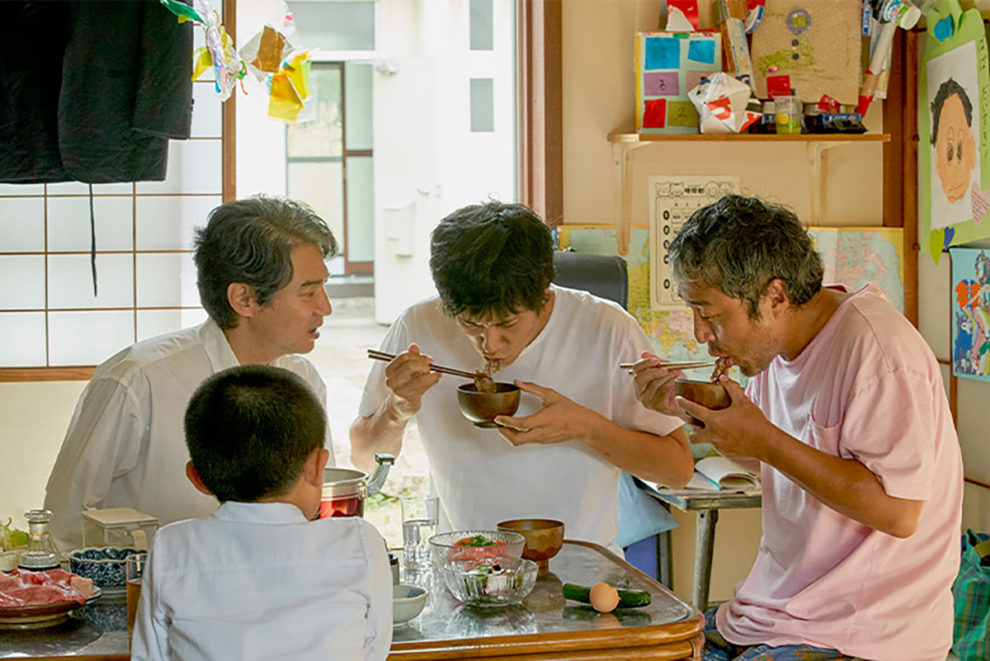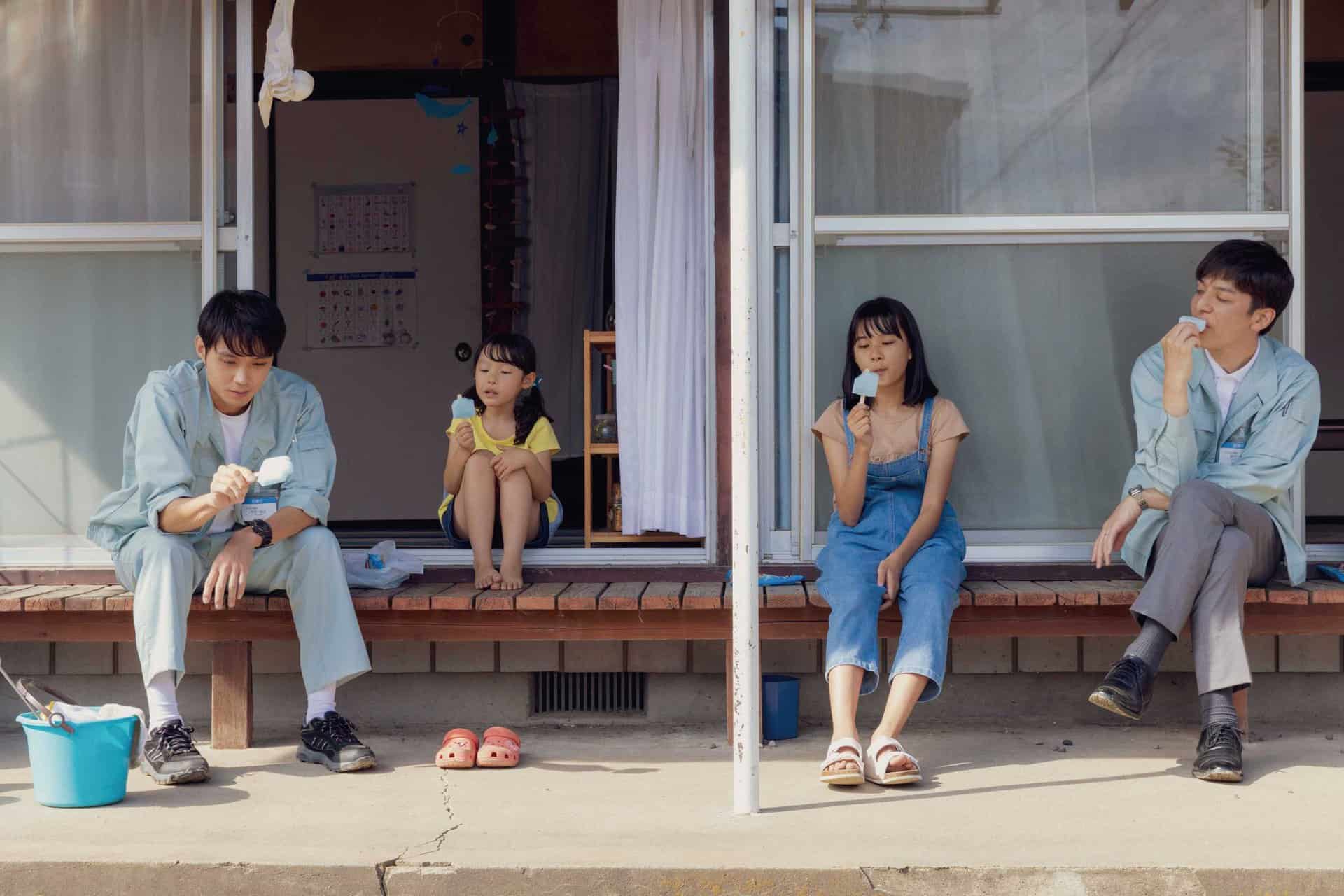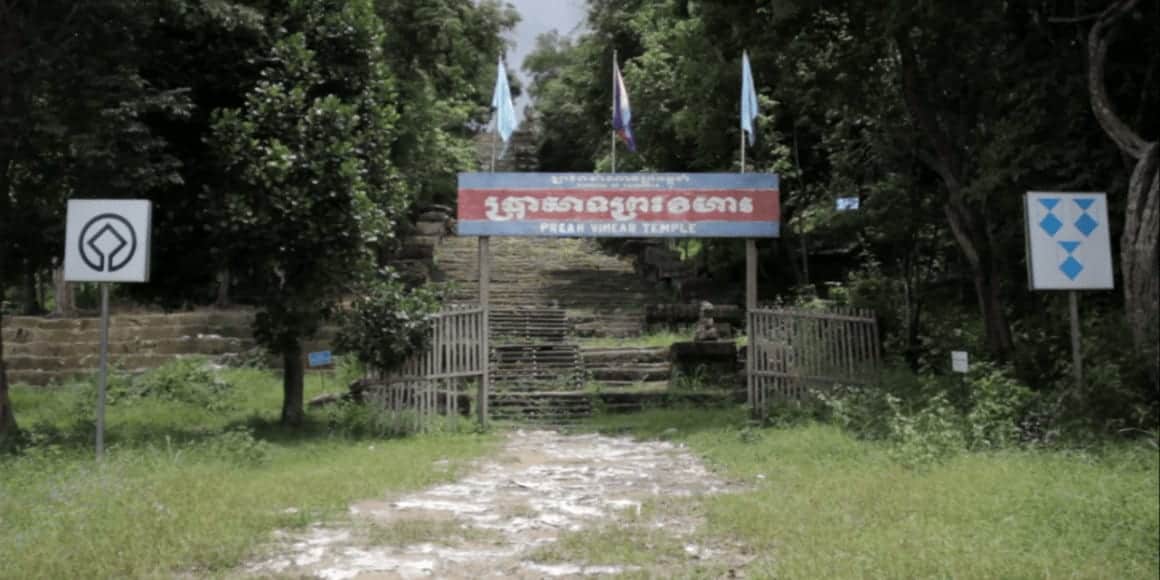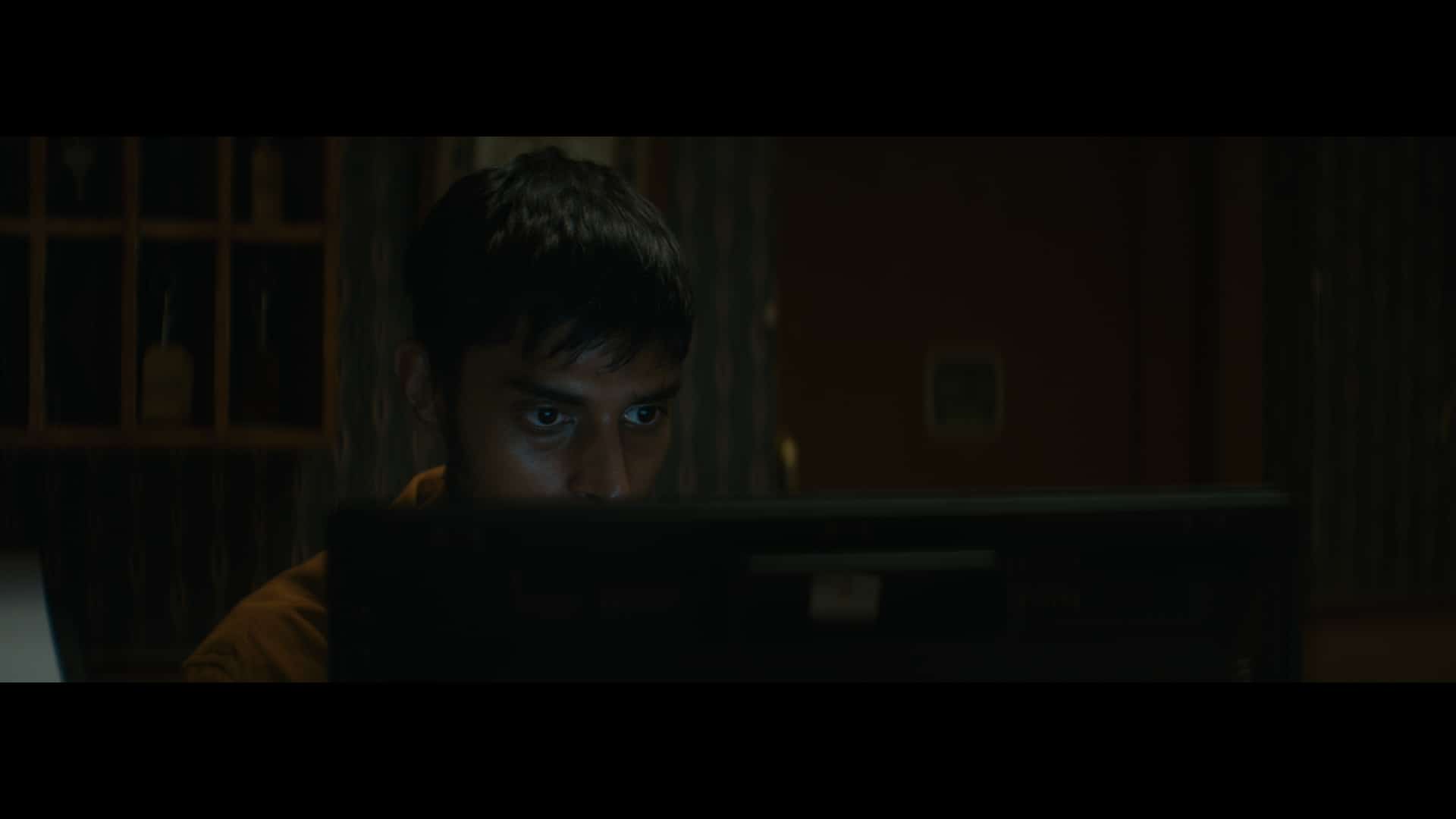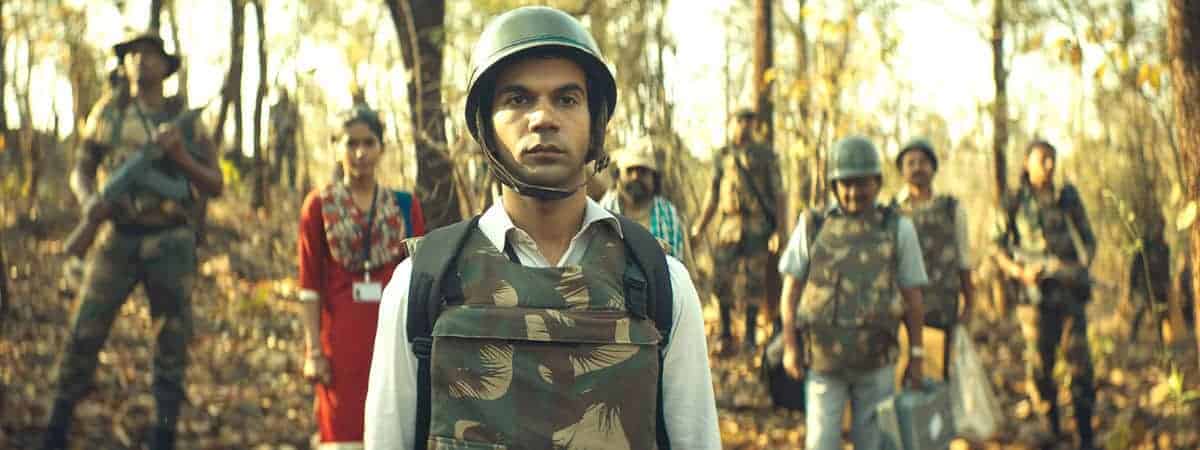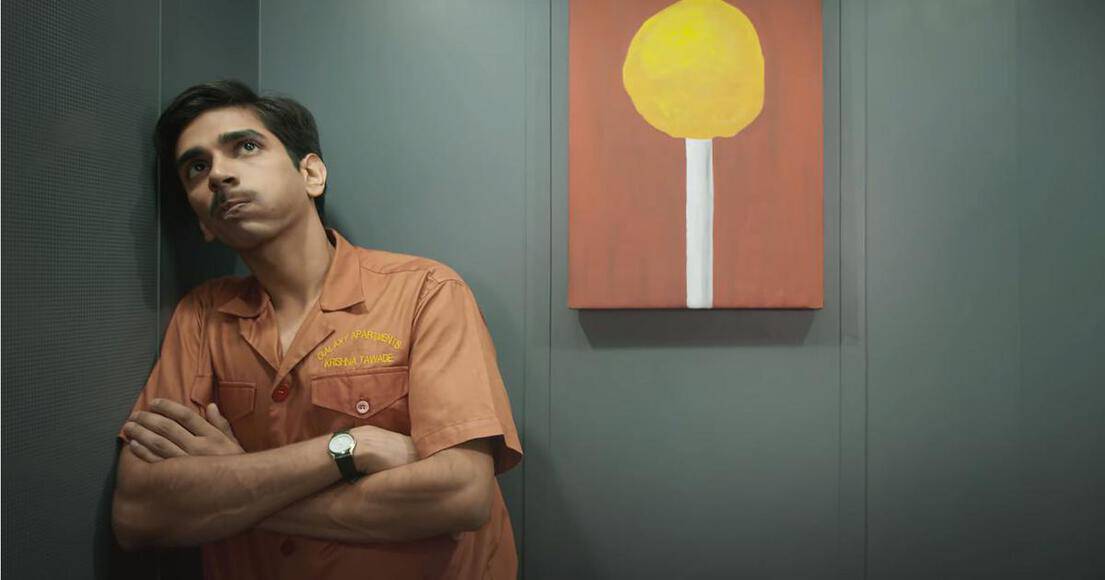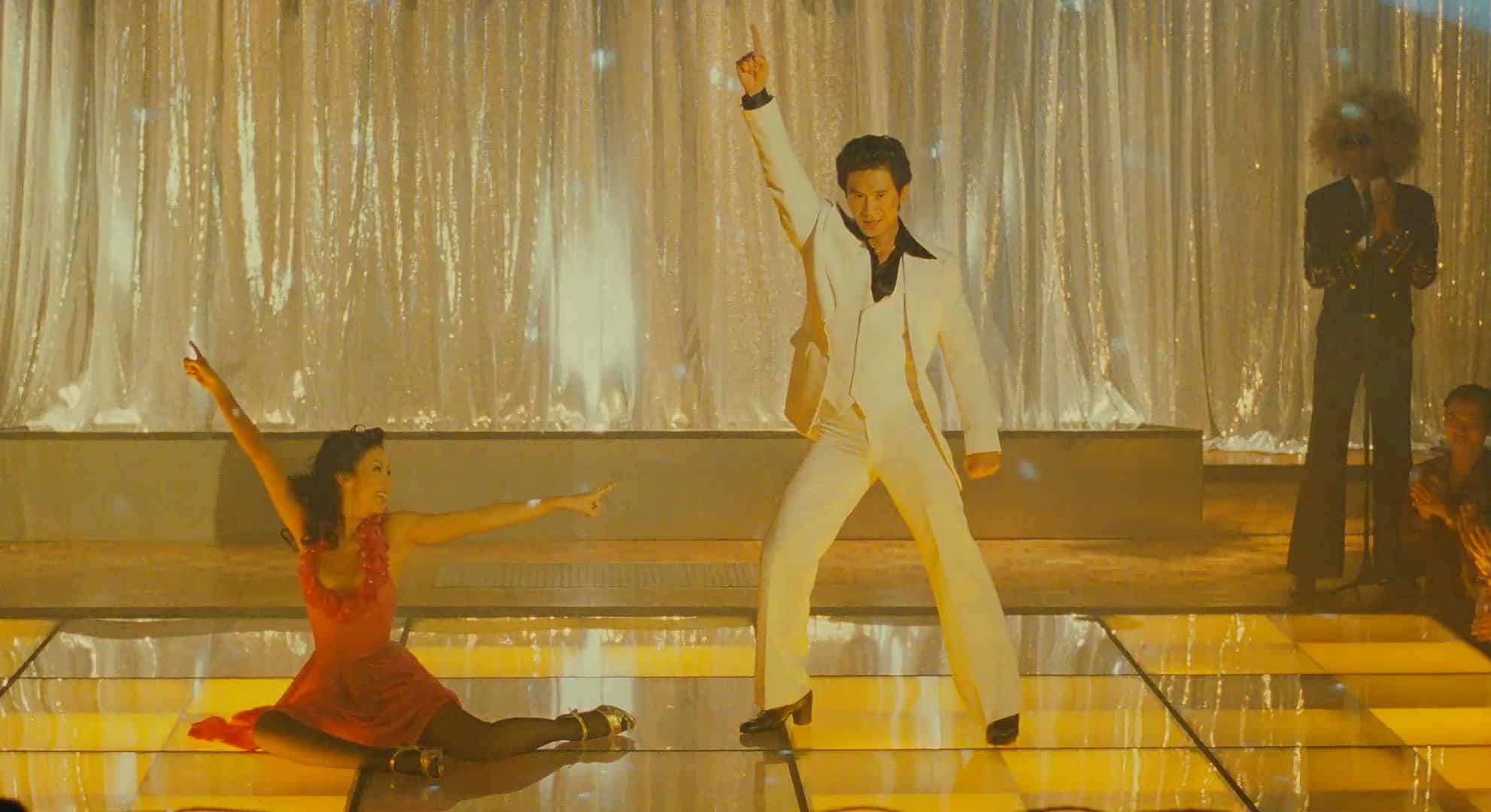It's always a joy when a new film by Japanese director Naoko Ogigami is released. After “Close-Knit”, awarded at the Berlinale, “Riverside Mukolitta” (Kawapperi Mukolitta) is her latest feature, a film adapted from a novel written by Ogigami herself.
“Riverside Mukolitta” is screening at Helsinki Cine Aasia
Takeshi Yamada (Kenichi Matsuyama) is a lonely young man who arrives, penniless and looking desolate, in the coastal town of Toyama, to work at a shiokara (salted squid) factory. We don't know at this point why Yamada is there or anything about his past, but factory CEO Sawada (Naoto Ogata) who knows everything, gives him a warm welcome and sends him to Shiori Minami (Hikari Mitsushima) who will be able to find him a cheap accommodation. In fact, landlady Shiori, a young widow with a daughter, lets a 50-year-old flat to Yamada for a good price, part of the small compound called Mukolitta Apartments, populated by a group of quirky humans. His neighbors include Kozo (Tsuyoshi Muro) who lovingly grows vegetables in the garden, door-to-door tombstone seller Kenichi Mizoguchi (Hidetaka Yoshioka) who works with his little “mini-me” son, in charge of the tag line “We put our hearth in our service”, Gan-Chan, a silent monk of a local temple who likes making chewing gum balloon and the ghost of an old lady, a departed former Mukolitta resident.
Kozo is the first to introduce himself in a bizarre way, insisting to have a bath at Yamada's flat, and soon repays the favor giving Yamada some homegrown vegetables, a lifeline for the young man who is struggling in the days before receiving his first salary. Slowly the two become closer and start sharing some simple pleasures, like freshly cooked rice, a crunchy cucumber with mayonnaise, a chilled can of beer in a hot day and also some personal secrets and past experiences. The reason why Yamada is there will surface in their chat. At the same time, Yamada receives a notification that his long-estranged father has passed away, found dead in his home, and his remains need to be collected at the crematorium. Yamada, after a life without a father, is now forced to share his flat with the man's ashes, triggering a series of consideration about his own life.
While her previous “Close-Knit” followed a more traditional narrative and the scope of a “social problem” film, with “Riverside Mukolitta” Ogigami goes back to her trademark depiction of quirky, absurd characters of insular communities, in a more episodic manner. But while the plot is a thin backbone, a more important subject matter sustains and runs through all the various characters and their lives. In fact, all of them share a significant experience about death; from Yamada's father to Shiori's beloved husband, a team of invisible ghosts refuses to depart this world and keep hanging in the air, tickling and tormenting the lives of the ones left behind. Kenichi, pitching his tombstone business has the unpleasant function of “memento mori”, reminding us that we are all going to die, and monk Gan, spends his time fishing and blowing chewing gum balloons as nobody anymore want to spend money to hire him for a funeral ceremony.
However, being in a Naoko Ogigami's film, this heavy and deep subject is mediated by a dark and surreal sense of humour and a hefty dose of mundanity. She depicts everyday life like no others, highlighting little sweet details and the comic absurdity of many moments. A perfect example is Yamada finding some clues about his father in the most unlikely ways; from the scrupulous, soft-spoken crematorium attendant who delivers the remains and shows Yamada his father's perfectly preserved apple bone or from the telephone lifeline operator (the last call on the father's cell phone) describing the souls of the deceased like goldfish floating in the air. Yamada's character is full of human frailties and pains making him easy to care for, despite his spiky and love-repellent appearance. He faces his father's miserable and lonely death with great pain as he is scared to inherit the same miserable life. “Is being good-for-nothing genetic? Is worthlessness handed down?” he asks in tears to CEO Sawada. Yet, he is surrounded by good people, that have learned to find joy in small things in the face of adversity, and the last scene is a highly rewarding closure.
Food is a way director Ogigami uses to talk about day-to-day life, and food is everywhere, it's the buoy that keeps the characters afloat. Crunching, chomping noises punctuate the protagonists' conversations; food is shared, scrounged, donated and desired as much as love, friendship and pain. The main role of the film is played with intensity by Kenichi Matsuyama, who recently has been seen acting out several similar moody and introverted characters, like in “Noise” and “Blue”. He embodies a frightened man/child with commitment and talent, and the double act with popular actor Tsuyoshi Muro in the role of Kozo is very balanced and entertaining. Apparently, Ogigami met Kenichi Matsuyama at the Udine Far East Film Festival where she was presenting “Close-Knit” and thought he was the one for the role. As always in her films, all the secondary parts are well developed, even the very small ones like the cheerful taxi driver, former firework operator, who put the wife's ashes in a firework to send her off in the night sky. The visual style is what I would define the director's very personal “sunny” realism, candid and truthful with a touch of happy magic, over mesmerizing landscapes; even this time, despite the definite turn to a darker side.
“Riverside Mukolitta” is a film about death affecting life, about little joys overcoming fear and about second opportunities in life, told with wit and personality.


